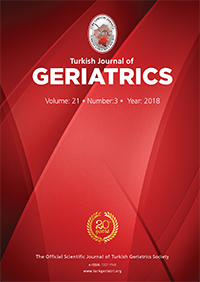Materials and Method: The data were collected from parents of adults above 60 years of age. Participants in this study included 216 in parents of adults. The questionnaire used in this research consisted of 3 sections. The first section focussed on demographic information such as age, gender, marital status. In the second section, the Satisfaction With Life Scale (SWLS) developed by Diener et al was used to measure the parents" satisfaction with life. The third section comprised the two subscales given by Bengtson and Schrader in the Intergenerational Solidarity Scale: affectual and functional solidarity.
Results: The average for affectual solidarity dimensions was 54.08, the average of functional solidarity dimensions was 12.26, the average of the standardised intergenerational solidarity scale was 66.35 and the average of the Satisfaction With Life Scale was 21.62.
Conclusion: When the Satisfaction With Life Scale was compared with affectual solidarity in moderating a positive linear relationship, results were r=0.401, p<0.01. Between the Satisfaction With Life Scale and the standardised intergenerational solidarity average, a positive linear relationship was found to be insignificant (r=0.368, p<0.01).
Keywords : Aging; Intergenerational relations; Life; Personal satisfaction
